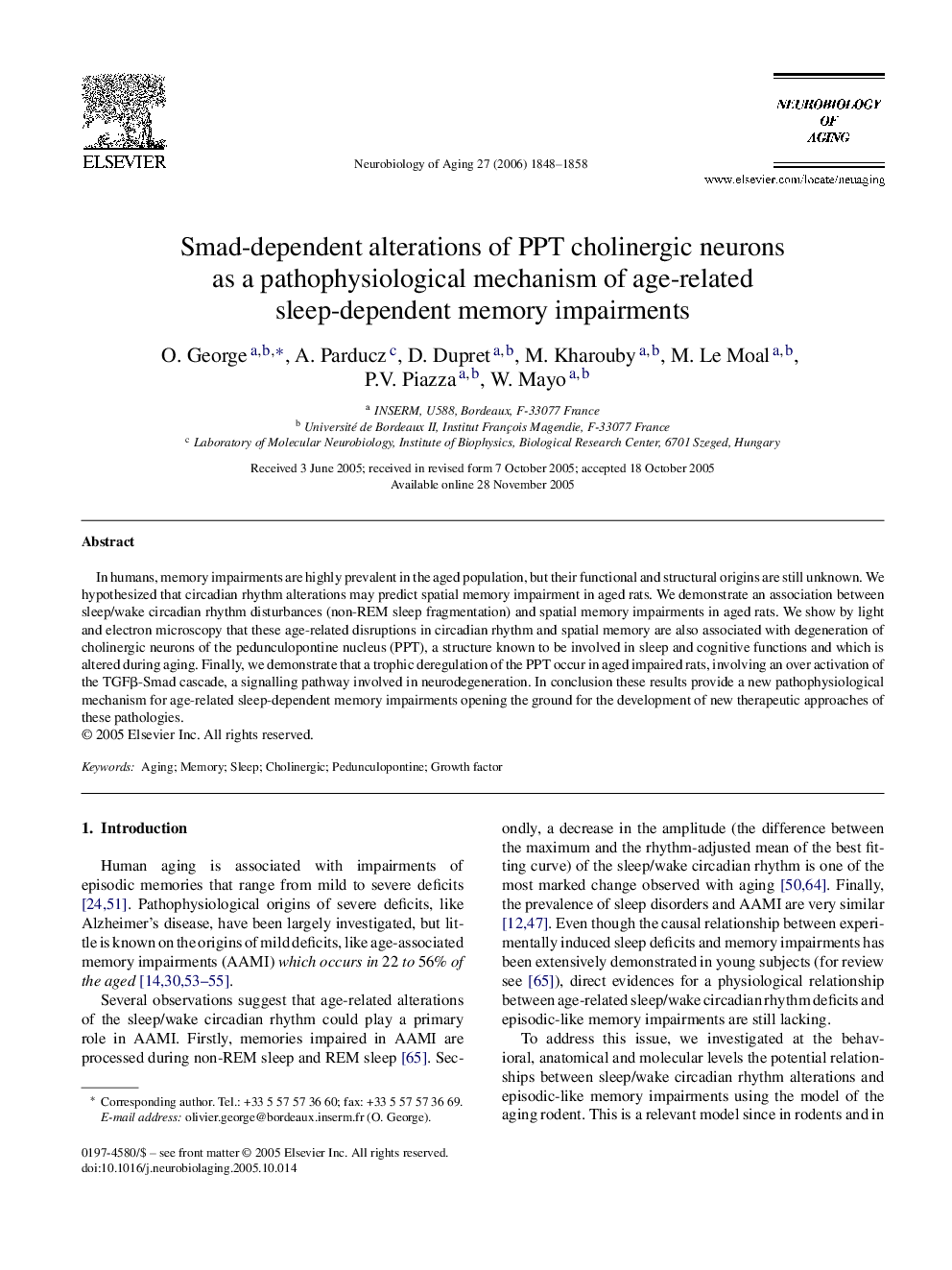| Article ID | Journal | Published Year | Pages | File Type |
|---|---|---|---|---|
| 330508 | Neurobiology of Aging | 2006 | 11 Pages |
In humans, memory impairments are highly prevalent in the aged population, but their functional and structural origins are still unknown. We hypothesized that circadian rhythm alterations may predict spatial memory impairment in aged rats. We demonstrate an association between sleep/wake circadian rhythm disturbances (non-REM sleep fragmentation) and spatial memory impairments in aged rats. We show by light and electron microscopy that these age-related disruptions in circadian rhythm and spatial memory are also associated with degeneration of cholinergic neurons of the pedunculopontine nucleus (PPT), a structure known to be involved in sleep and cognitive functions and which is altered during aging. Finally, we demonstrate that a trophic deregulation of the PPT occur in aged impaired rats, involving an over activation of the TGFβ-Smad cascade, a signalling pathway involved in neurodegeneration. In conclusion these results provide a new pathophysiological mechanism for age-related sleep-dependent memory impairments opening the ground for the development of new therapeutic approaches of these pathologies.
